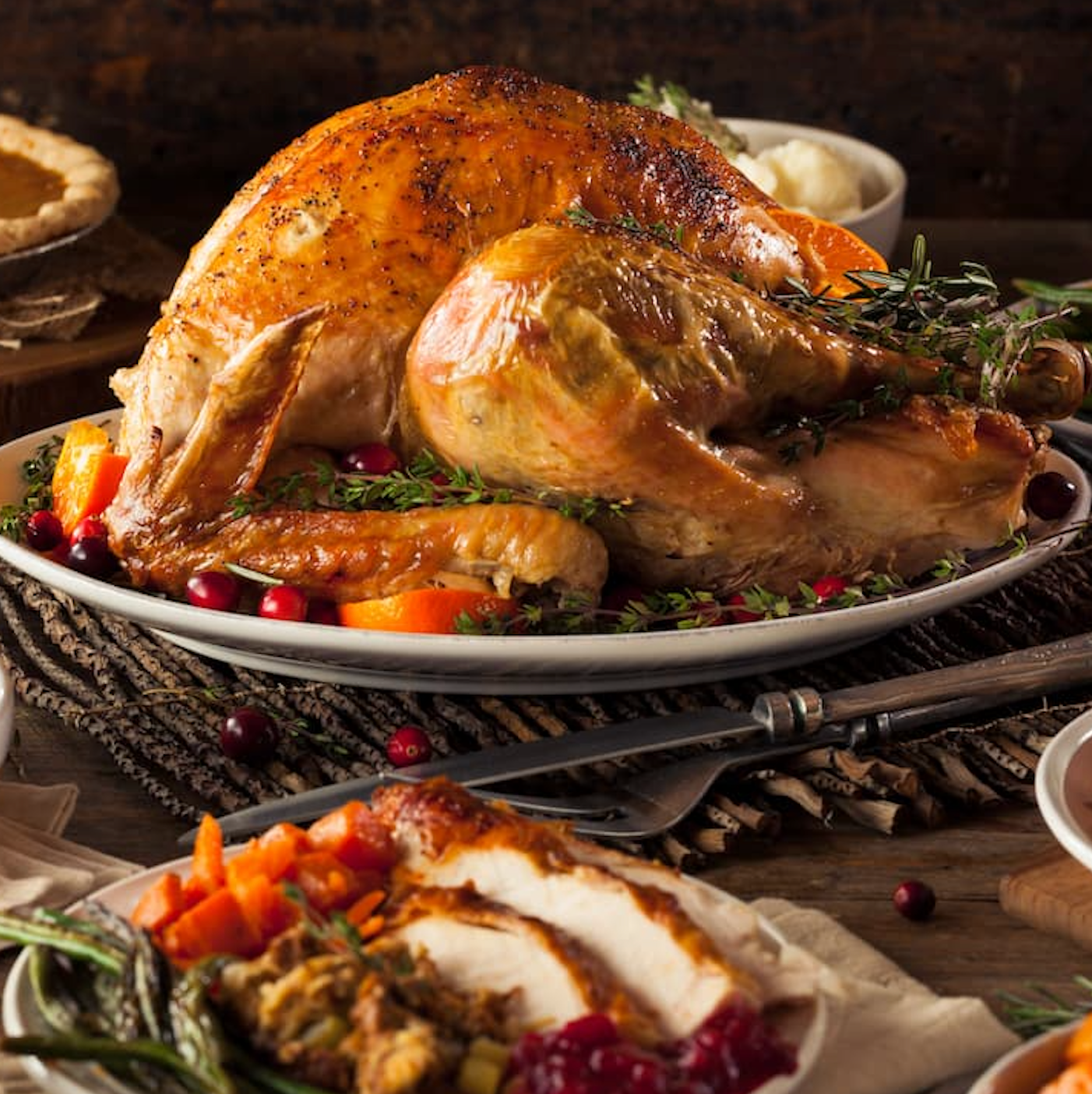A Practical Guide to a Gluten-Free, Stress-Free Thanksgiving
With smart planning and gluten-free alternatives, Thanksgiving can be both delicious and safe for everyone.
By
Lana Pine
| Published on November 26, 2025
5 min read
Credit: Adobe Stock/Brent Hofacker

A gluten-free Thanksgiving is absolutely achievable with the right planning, smart swaps and a commitment to keeping cross-contamination out of the kitchen.
Celebrating Thanksgiving while managing celiac disease can feel overwhelming at first. Traditional holiday menus are packed with gluten — stuffing, pies, gravy, casseroles and dinner rolls all make the list. But with thoughtful preparation and modern gluten-free options, families can enjoy a holiday that’s both safe and deeply satisfying. This guide breaks down practical strategies, trusted product tips and ways to ensure everyone at the table feels included.
Start With a Gluten-Free Game Plan
Planning early is essential. Once you decide which dishes will be gluten-free, create a clear ingredient list and communicate with anyone else who may be cooking. If you’re attending someone else’s dinner, offer to bring a few safe dishes and kindly explain your needs — most hosts appreciate the clarity.
For families hosting the meal, consider labeling dishes as “gluten-free” or “contains gluten.” This helps prevent mix-ups and gives guests with dietary restrictions peace of mind.
Helpful resource: Celiac Disease Foundation Thanksgiving Guide
Cross-Contamination: The Hidden Holiday Hazard
Even the safest ingredients can cause trouble if they’re prepared in ways that expose them to gluten. During Thanksgiving, this often happens unintentionally — such as using the same serving spoon from the stuffing on the roasted vegetables.
Easy ways to reduce risk:
Use separate cutting boards, mixing bowls and utensils for gluten-free dishes.
- Make gluten-free items first, before breadcrumbs, rolls or wheat flour enter the kitchen.
- Keep gluten-free dishes covered until serving time.
- Avoid shared fryers, toasters or ovens that have loose crumbs.
A good rule of thumb: If you’re not 100% sure it’s safe, don’t eat it.
Rethink the Classics With Gluten-Free Swaps
With so many accessible gluten-free products on the market, you don’t need to give up holiday favorites. Here are safe and delicious alternatives:
Gluten-Free Stuffing
Use a gluten-free bread such as:
Cube, toast and season just like traditional stuffing. For inspiration, check out this recipe example.
Gravy Without Wheat Flour
Skip the roux and thicken gravy with:
- Cornstarch
- Arrowroot powder
- Gluten-free all-purpose flour (such as King Arthur or Bob’s Red Mill)
Casseroles Without Canned Soups
Many canned soups contain gluten. Instead, make a simple homemade version using gluten-free broth and a thickener.
Pie Made Gluten-Free
Use:
- Premade gluten-free pie crusts (Wholly Gluten Free, Mi-Del)
- Or make your own with almond flour or a 1-to-1 gluten-free baking blend.
Safe Sides That Win Over Everyone
Some dishes are naturally gluten-free — or can easily be adapted.
Try these:
- Mashed potatoes (use real butter, milk and gluten-free broth)
- Roasted vegetables
- Cranberry sauce
- Sweet potatoes with butter, maple syrup and pecans
- Green beans sautéed in garlic and olive oil
Be cautious of:
- Fried onions in green bean casseroles (make or buy gluten-free versions)
- Premarinated meats
- Seasoning packets (many contain hidden gluten)
Manage Social Dynamics With Confidence
Thanksgiving includes more than just food — it’s also full of conversation, expectations and family habits. People may not understand celiac disease or why cross-contact matters.
A few helpful phrases:
- “Thank you for offering! I have to be really careful with gluten, so I’ll bring a safe dish for myself.”
- “That looks delicious, but I can’t risk cross-contact due to celiac disease.”
- “I’m happy to help in the kitchen so I can keep my food safe.”
Most loved ones appreciate guidance; clarity helps remove awkwardness.
Focus on What You Can Enjoy
Thanksgiving can feel restrictive for someone with celiac disease, but it doesn’t have to be. With safe food options, creative substitutions and the willingness to adapt, families can enjoy a full, comforting, flavorful holiday meal.

